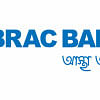On the verge of digital banking revolution

Digital banks operate exclusively online without traditional physical branch networks. Traditional brick-and-mortar banks have high operational costs, including maintenance of physical branches and staff. Digital banks have much lower overhead costs as they rely on technology for their operations. This allows them to offer services at a more reasonable price to customers. The evolution of digital banking means converting current manual or paper-based documentation into digital formats and changing business rules or procedures to accommodate those.
In line with the government's goal to establish a "Smart Bangladesh", the central bank has recently unveiled guidelines on digital banks with a detailed regulatory framework. According to the guideline, a consortium of 10 banks jointly announced their immense interest alongside mobile financial services like Nagad and bKash and many other financial, non-financial, fintech and telecommunication companies to join the voyage of the digital banking era in Bangladesh.
Despite significant improvements, internet penetration in Bangladesh is still relatively low, with around 46 percent of the population having access to the internet. This poses a challenge for the digital banking ecosystem as it heavily relies on internet connectivity. Digital banks need to work closely with telecom providers and the government to improve connectivity and reach.
A significant portion of the population in Bangladesh has limited knowledge and limited financial literacy and understanding of digital banking services. Educating customers about the benefits and security features of digital banking is crucial to gain their trust and for them to avail the services.
The regulatory framework for digital banking in Bangladesh is still evolving and needs to navigate through complex regulations and comply with strict guidelines set by the central bank. Cybersecurity is a major concern here. The risk of fraudulent activities and data breaches is high and banks need to invest hugely in robust cybersecurity measures to protect customer data. We have to bear in mind that inadequate technology infrastructure, low technological literacy, frequent power outages and limited access to banking services in remote areas will also pose challenges for these digital banks to provide seamless and reliable services across the country.
Nevertheless, to start with, digital banks need to invest a lot in a robust technological infrastructure to ensure uninterrupted banking services. This includes reliable internet connectivity, secure servers, and advanced encryption technologies. Digital banks should have open APIs (application programming interfaces) that allow seamless integration with third-party providers. This empowers partnerships with fintech companies, payment processors, and other service providers.
Digital banks must comply with the regulations and guidelines set by the central bank to ensure transparency, security, and accountability in their operations. This includes necessary licenses and adhering to anti-money laundering compliance and know-your-customer regulations.
Digital banks need to educate their customers about the benefits and convenience of digital banking. This includes organising awareness campaigns, providing user-friendly interfaces, and offering customer support for any queries or concerns. Collaborating with traditional banks is a food for thought for the digital banks to expand their reach and leverage the existing banking infrastructure.
Overall, the prospect of digital banking in Bangladesh is promising in line with the "Smart Bangladesh" catchphrase. In the age of AI with the right strategies and investments, digital banks have the potential to transform the financial landscape of the country, increase financial inclusion, and drive economic growth with huge intensity.
The writer is a senior banker

 For all latest news, follow The Daily Star's Google News channel.
For all latest news, follow The Daily Star's Google News channel. 







Comments